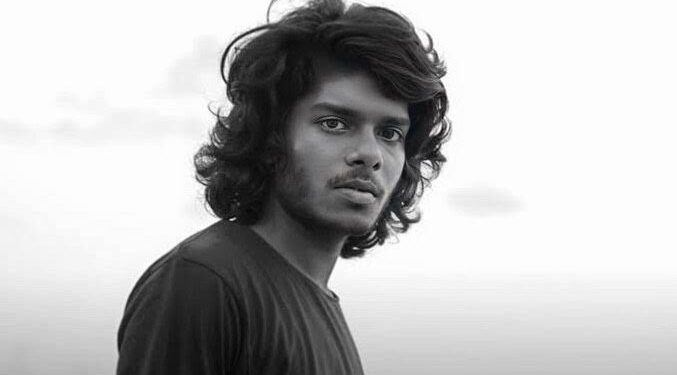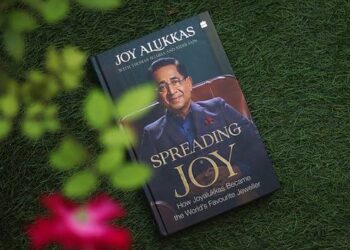Hirandas Murali, known by his stage name Vedan, has emerged as a polarizing figure in the Indian music scene, particularly within the burgeoning Malayalam rap industry. Hailing from Thrissur, Kerala, Vedan has carved a niche as an anti-caste rapper whose politically charged lyrics confront systemic issues like caste discrimination, class disparity, and marginalization. His rise to prominence, however, has been shadowed by controversies, including allegations of sexual misconduct and drug use, which have sparked debates about his authenticity and influence. This article explores Vedan’s journey, his artistic contributions, and the complexities surrounding his public persona.
The Rise of Vedan
Born to a Tamil mother from Sri Lanka and a Malayali father, Vedan grew up near Thrissur’s railway station, where his father worked in construction. His early exposure to Malayalam and Tamil music, coupled with an affinity for poetry, shaped his artistic sensibilities. Influenced by Tamil hip-hop artists like Yogi B and Dhilip Varman, Vedan entered the music scene in 2020 with his debut track, *Voice of the Voiceless*. The song resonated with audiences for its raw critique of caste hierarchy and Brahmanical hegemony, earning him a dedicated following among Kerala’s youth and progressive circles.
Vedan’s music is characterized by its unapologetic tone and focus on social justice. Tracks like *Theruvinte Mon* and *Mauna Loa* blend personal storytelling with political commentary, addressing issues such as racial oppression, climate change, and the struggles of marginalized communities. His work has been celebrated for giving voice to the disenfranchised, with supporters like activist Rehna describing him as a disruptor of the “savarna ecosystem” who challenges caste pride through his art.
His growing popularity has also led to mainstream opportunities. Vedan has contributed to Malayalam films like *Kondal*, *Checkmate*, and *Narivetta*, and is set to make his Tamil cinema debut in director Vijay Milton’s upcoming Tamil-Telugu bilingual film, tentatively titled *Production No.*. His performance at events like the Ente Keralam expo in Idukki further underscores his rising cultural influence.
Clashing with the System
Vedan’s outspokenness has often put him at odds with institutional and societal structures. His inclusion in the syllabus of Calicut University’s third-semester BA Malayalam course, specifically his song *Bhoomi Njan Vazhunnidam* (*The Earth I Live In*), sparked significant controversy. Kerala Governor Rajendra Arlekar and syndicate member Anuraj A.K. raised objections, citing Vedan’s past controversies, including alleged drug use and the use of obscene language in some of his songs. Anuraj argued that Vedan’s music could negatively influence young minds, pointing to videos where he is seen consuming alcohol with friends. On July 16, 2025, M.M. Basheer, former head of the Department of Malayalam at Calicut University, recommended removing Vedan’s song from the syllabus following complaints, a decision that has fueled debates about censorship and artistic freedom.
Critics like writer and actor Joy Mathew have questioned the depth of Vedan’s activism, suggesting his rap is more performative than substantive. Mathew argues that Vedan’s focus on spectacle over substance fails to address pressing issues like the ASHA workers’ protests or tribal agitations, raising questions about whether his rebellion is ideological or merely aesthetic. Despite this, Vedan’s supporters view these criticisms as attempts by the establishment to silence a voice that challenges systemic inequities.
A Controversial Past
Vedan’s career has been marred by allegations of sexual misconduct, which have resurfaced amid the broader MeToo movement in Kerala’s film and music industries. Posts on X from users like @labstamil have referenced accusations of sexual misconduct by multiple women, though no formal charges or detailed public accounts are available in the provided sources. These allegations have polarized opinions, with some accusing Vedan of hypocrisy given his advocacy for marginalized communities, while others, like @Rehna_AntiCaste, frame the backlash as a concerted effort by “caste conservatives” to discredit him.
Additionally, Vedan has faced scrutiny for alleged drug use and arrests, as noted in complaints lodged with Calicut University. A post by @MahaRathii on X further claimed that Vedan made inflammatory remarks about the phrase “Jai Shree Ram” on television, accusing him of aligning with controversial political groups. These claims remain unverified and highlight the contentious nature of his public image.
The MeToo movement in Kerala, often referred to as Mollywood’s reckoning, has brought renewed attention to Vedan’s past. The 2023 Malayalam film *Neru*, which addressed themes of sexual assault and consent, has been cited as a cultural touchstone in these discussions. However, the film’s stars, Mohanlal and Siddique, have themselves faced scrutiny, underscoring the complexity of the movement and its impact on public figures like Vedan.
Art vs. Artist
The debate surrounding Vedan encapsulates a broader question: can an artist’s work be separated from their personal conduct? His music, lauded for its authenticity and social relevance, has undeniably struck a chord with a generation grappling with systemic injustices. Yet, allegations of misconduct and drug use have cast a shadow over his legacy, prompting critics to question whether his persona as a “voice of the voiceless” is genuine or a carefully curated image.
Vedan himself has acknowledged the challenges of his position. In a July 2025 interview with *Rolling Stone India*, he stated, “Because of the things I choose to hunt down, I end up being hunted.” This sentiment reflects the precarious balance he maintains as a provocateur challenging the status quo while navigating personal and legal controversies.
The Road Ahead
As Vedan’s music gains traction, both in Kerala and beyond, his ability to navigate these controversies will shape his legacy. His Tamil cinema debut offers a chance to reach a broader audience, but it also amplifies the scrutiny on his actions and art. The decision to remove his song from Calicut University’s syllabus may galvanize his supporters, who see it as an attempt to suppress dissent, or further fuel criticism from those who view him as a problematic figure.
Vedan’s story is emblematic of the tensions within India’s evolving cultural landscape, where art, activism, and personal accountability intersect. Whether he remains a symbol of resistance or becomes a cautionary tale of fame and controversy depends on how he addresses the challenges ahead. For now, Vedan continues to rap, provoke, and divide—a true enfant terrible of Malayalam hip-hop.







































